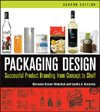The Flexible Packaging Association issued letters to the White House, all Governors, and Capitol Hill leadership with regard to the need for essential packaging manufacturing during this time of uncertainty, particularly food insecurity and access to pharmaceutical and medical supplies. The letters also highlight the need for clarity with respect to federal, state and local government proclamations distinguishing “essential” business operations from mass population event limitations.
Flexible packaging protects products that consumers use every day – including hermetically sealed food and beverage products such as cereal, bread, frozen meals, infant formula, and juice; as well as sterile health and beauty items and pharmaceuticals, such as aspirin, shampoo, feminine hygiene products, and disinfecting wipes. Even packaging for pet food uses flexible packaging to deliver fresh and healthy meals to a variety of animals.
Flexible packaging is also used for medical device packaging to ensure that the products packaged, diagnostic tests, IV solutions and sets, syringes, catheters, intubation tubes, isolation gowns, and other personal protective equipment maintain their sterility and efficacy at the time of use. Trash and medical waste receptacles use can liners to manage business, institutional, medical, and household waste. Carry-out and take-out food containers and e-commerce delivery, which are increasingly important during this time, are also heavily supported by the flexible packaging industry. Thus, FPA and its members are vital to the supply chain when addressing the needs of U.S. consumers in responding to the COVID-19 crisis.
It is of fundamental importance that the industry’s manufacturing facilities stay open and functioning in order to supply the necessary packaging consumer product companies and retailers need to supply goods the public needs through this health crisis.
We have all seen the unprecedented lines at stores and the empty shelves as consumers attempt to provide for their families, with even the basics, such as protein, toilet paper, and hand sanitizer, while heeding the various polices to stay at home and practice social distancing. We are also concerned about the need for increased production of medical protective supplies to our doctors, hospitals, and first responders. Flexible packaging manufacturers stand ready to assist in closing these gaps and ensuring food and medical security as the country faces this crisis.
In order to do so, FPA requests certain clarity with respect to state and local mandates. We ask that there be uniformity at the state and local levels in distinguishing bans on social gatherings and the closure of bars, gyms, and museums from business operations. Employees should not be confused about whether or not they report to work based on a myriad of state and local limitations on public forums.
In addition, given that the supply chain can and will deliver the goods needed to restock shelves and keep consumers safe if allowed to do so, we request that consumer and pet food, health and beauty, pharmaceutical, and medical device packaging be considered essential manufacturing and a critical infrastructure industry, as stated in the recently released “President’s Coronavirus Guidelines for America.” This, along with our supply chain partners in the food and health industries, such as food processors, transportation and distribution centers, retail establishments, e-commerce providers, restaurants, and other indispensable parts of the supply chain, should be considered equally critical.
FPA members are committed to the health and safety of their workforce and the families they support. Rigorous safety precautions are already in place at our manufacturing facilities to protect not only the workers but the consumers who will ultimately use and digest the products their packaging protects. Let the industry continue to support these critical goods and service sectors, which will also assist in responding to COVID-19 across the country.









